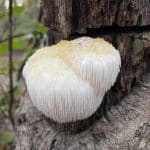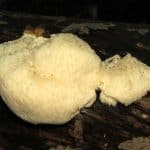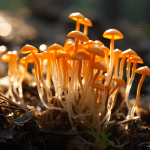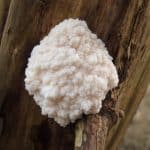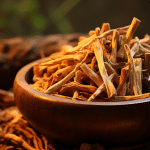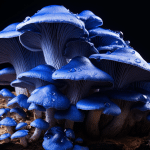The Resurging Popularity of medicinal mushrooms in mainstream wellness is proof that good things, especially naturally good things, never really go out of style. Ancient adaptogens like reishi, lion’s mane and the immunity-boosting chaga mushroom have been used in wellness practices for centuries.
They are recently all the rage again thanks to their incredible health benefits and modern brands (like Four Sigmatic and Sun Potion) who make it easy to access and use daily. There are many healing mushrooms to explore. Still, we think chaga deserves to be a staple of your daily wellness routine.
Is Chaga an Adaptogen?
Yes, chaga mushroom is considered one of the most potent adaptogens in the world. Chaga is an incredible source of antioxidants, which helps keep our body’s balanced and our immune systems strong. Traditionally, chaga mushroom is used to make a healing tea or coffee substitute, but the benefits can also be enjoyed in the form of a morning smoothie or raw snack.
Adaptogens play a key role in keeping our systems balanced, our hormones in check, and our immunity high. Used traditionally in Ayurveda and Chinese medicine for centuries, the Western world is finally getting clued in on the power of adaptogens. They boast the ability to support nearly all systems. They help your body adapt to everything from stress to immunity and mood.
Using Chaga Mushroom As An Adaptogen
Many edible mushrooms and fungi are classified as adaptogens. This includes the subject of today’s article: Chaga. You’ve probably seen Chaga out in the wild without realizing it. Usually found growing on birch trees, Chaga is a destructive tree fungus that has been found to be extremely beneficial for human consumption. The benefits of adaptogens are seen when herbs are taken on a regular basis, and are wide ranging, differing person-to-person.
Overall, adaptogens fine tune and tone various systems in the body, improve response and recovery, and adjust physiological processes as conditions change. There are many amazing herbs that don’t meet the criteria of being classified an adaptogen, and that’s ok! We love super herbs and mushrooms and you’ll find these plants in the products we support on this site as well.
Learn more: Chaga mushroom and testosterone
Adaptogens may support the following functions:
- Immune function
- Recovery from fatigue
- Blood sugar and blood pressure
- Balancing endocrine gland function (think cortisol, insulin, melatonin, thyroid function)
- Balancing hormones (both men and women)
- Sleep quality
- Physical stamina
- Focus and mental clarity
- Mental and physical endurance
- Overall longevity and wellbeing
History of Chaga Mushroom as an Adaptogen
For centuries, various varieties of mushrooms have been used for medicinal purposes, like strengthening immunity and improving general health. Each medicinal mushroom has their own benefits, and they are all so different, that is why we are huge fans of and decided to include them in our adaptogen supplements that we support on this website.
Learn more: Chaga mushroom and covid-19 studies
Chaga mushrooms are commonly called conch-like polypores, Black Mass, Cinder-Conk, or Birch-Cask Polypores. It is a species of mushroom from the Hymenochaetaceae family, which grows mostly on birch tree bark in cold climates. Due to its irregular shape and coal-like appearance, it might not seem too attractive, but it provides a very long list of health benefits. We do not ever like to judge by looks here at Health by Mushrooms.
You can find our favorite capsules, powders, and tincture’s on the following pages of our website and learn more about each individually:
Known for traditional uses over the centuries, this mushroom has been sought after in the Nordic regions for some time. It thrives in the most extreme environments (think -40° winters) and it may take years before it is ready to adaptogenically mature. Along with all of the other ingredients that are included in the supplements and brands we promote on this website, they get it from a trusted vendor that has sustainable chaga harvesting as their highest priority, and are doing a lot to support the ecosystem.







